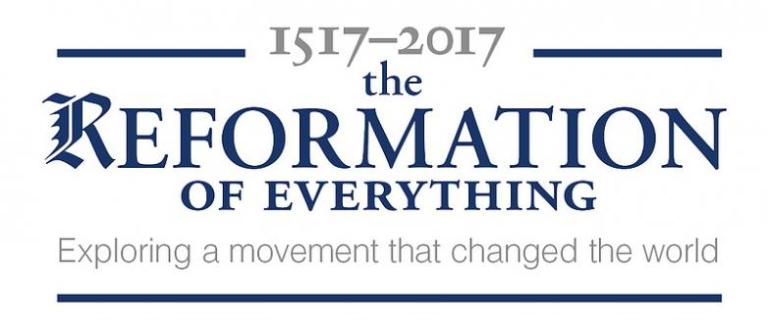 The 500th anniversary of Luther’s posting of the 95 Theses is soon upon us (next week on Halloween), and this year’s Reformation Day has not lacked for media coverage and internet hype. Some of what people are celebrating about the Reformation is valid, but some is not.
The 500th anniversary of Luther’s posting of the 95 Theses is soon upon us (next week on Halloween), and this year’s Reformation Day has not lacked for media coverage and internet hype. Some of what people are celebrating about the Reformation is valid, but some is not.
Christians of all stripes are marking the day, with some celebrating the recovery of the Gospel and some lamenting the church divisions associated with the Reformation. Secular folks too are using the anniversary to call attention to the Reformation’s cultural contributions. A number of those alleged contributions contradict what the Christians are celebrating.
Some of the cultural contributions cited are certainly valid. For example, Luther’s desire for all Christians to read the Bible was accompanied by initiatives that made that possible: Bible translations into vernacular languages, printing presses making Bibles universally available even for the poor, and–most dramatically–the opening of schools to teach the rich and poor, women as well as men, how to read. Universal education and the consequent social mobility this would make possible really is a direct legacy of the Reformation.
Some of the cultural contributions being cited are real, but indirect and perhaps exaggerated: freedom, individualism, democracy, human rights.
Some of the cultural contributions being cited are just wrong: rationalism, skepticism, secularism.
Some of the religious contributions that the Reformation is being either credited with or blamed for are also off the mark. Individuals now being able to interpret the Bible any way they liked? The replacement of sacramental Christianity? The ability to start new churches reflecting whatever people want to believe? Throwing out historical Christianity in favor of constant re-invention of the church? Replacing the church, with its social dimension, with a private, individualized “me-and-Jesus” approach to Christianity? Luther and his Reformation opposed all of that in no uncertain terms.
Peter Burfeind, campus pastor at the University of Toledo–a Lutheran of the Missouri Synod persuasion–has an article in The Federalist entitled 5 Ways To Not Celebrate The Reformation’s Quincentenary This Year. Here is his list of misconceptions about the Reformation. Go to the link for his explanations:
1. The Reformation Celebrates Anti-Catholicism
2. The Reformation Was the Coming of Age of Oppressed, Anti-Rome, Pre-Evangelicals
3. The Reformation Is about Liberated Consciousness
4. The Reformation Is All about the Triumph of Self against The Man
5. The Reformation Was Against ‘Legalism’ and ‘Pharisaism’
What are some other misconceptions that you are seeing amidst all of the 500th Anniversary of the Reformation hype?
Are there some assertions being made about the Reformation that you would like to challenge? Or solicit opinions about?
By the way, Rev. Burfeind is the author of a book well-worth reading on an important topic: Gnostic America: A Reading of Contemporary American Culture & Religion according to Christianity’s Oldest Heresy.”
Illustration: Free image from GraphicsBuzz.
 The 500th anniversary of Luther’s posting of the 95 Theses is soon upon us (next week on Halloween), and this year’s Reformation Day has not lacked for media coverage and internet hype. Some of what people are celebrating about the Reformation is valid, but some is not.
The 500th anniversary of Luther’s posting of the 95 Theses is soon upon us (next week on Halloween), and this year’s Reformation Day has not lacked for media coverage and internet hype. Some of what people are celebrating about the Reformation is valid, but some is not.










